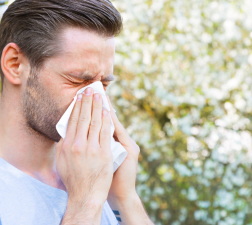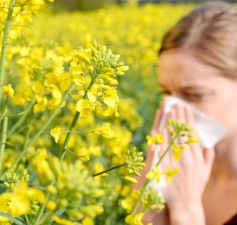Seasonal allergies are usually caused by pollen, dust mites, temperature changes, UV exposure, and other factors, and are a manifestation of allergic reactions. "Summer and autumn pollen is closely related to asthma. Some patients develop asthma in late July, and their symptoms only completely subside after the temperature drops." Climate change exacerbates allergies and asthma. Climate change leads to increased exposure to environmental allergens, such as increased greenhouse gases, rising global temperatures, and increased pollutants. Another factor is the influence of microorganisms. For example, the skin and nasal microbiota of young Russians are more diverse than those of Finnish populations, and microorganisms can guide gene activation and epigenetic adaptation. Another hypothesis is the epithelial barrier hypothesis, which posits that individuals with impaired epithelial barrier function often experience inflammatory responses within their epithelial cells, releasing various alarm signals that attract pro-inflammatory cell aggregation. The immune mechanisms leading to epithelial barrier dysfunction primarily involve type 2 immune responses, ultimately resulting in the formation of an allergic sensitization state and the occurrence of allergic reactions.

What are seasonal allergies?
Symptoms:
Treatment:
Treatment options:

